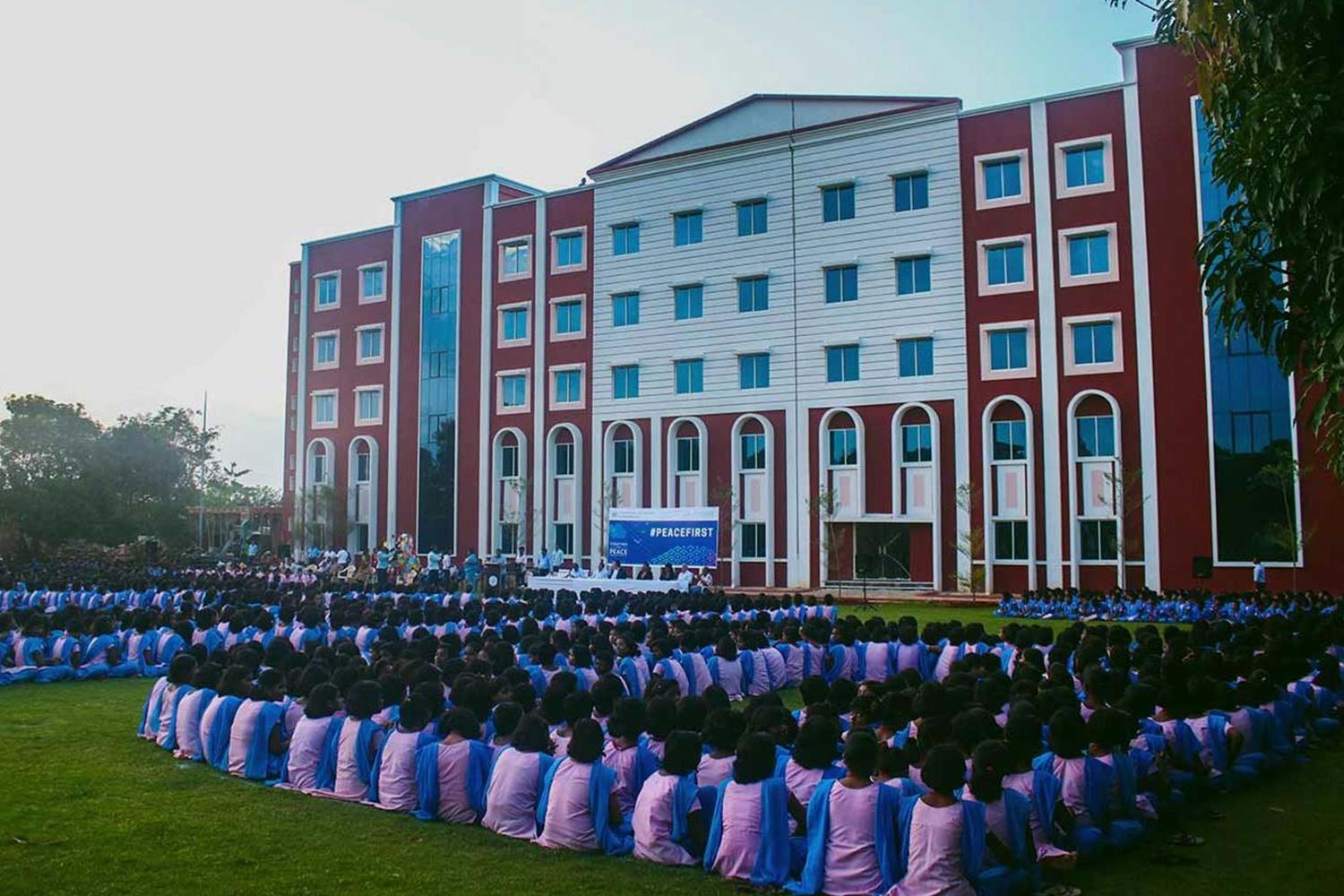Kalinga Institute of Social Sciences (KISS)
A Step Ahead Towards Social Commitment

Kalinga Institute of Social Sciences (KISS), the largest tribal institute of the world, provides food, accommodation, health care and all the basic necessities of life absolutely free to 60,000 (30,000 existing students and 30,000 graduates) poorest of the poor tribal children to pursue their studies here from KG to PG as well as vocational training. KISS, as a unique experiment to eradicate poverty through education and use of education as a tool to empower the underprivileged section of the society and provide sustainable employment, is being hailed by statesmen, policy makers, planners, social workers from India and abroad.
KISS has been declared a Deemed University (U/S 3 of UGC Act, 1956) by the Ministry of Human Resource Development, Govt. of India on August 25, 2017. With this, it has become the First tribal university in India and in the entire world. Organization in Special Consultative Status with the Economic and Social Council (ECOSOC) since 2015. NGO Associated with the United Nations Department of Public Information ( UNDPI).
KISS Facts
- Special Consultative Status with the Economic and Social Council (ECOSOC) since 2015 – the highest recognition to a non-government organization from the United Nations.
- Champion Level-Platinum Certification by GuideStar India for NGO Transparency (2016)
- Among top 223 NGOs of the world and 10 best NGOs of India in the prestigious ranking of world NGOs published in 2016 by NGO Advisor, a Geneva-based independent media organization.
- Programmes and activities aligned to Sustainable Development Goals (SDGs) of the UN and proactively working to achieve the goals.
- Expansive self-contained eco-friendly campus.
- Plans to educate 2,00,000 indigenous (tribal) children over the next decade and in the process of setting up branches in 10 states, with the support of respective state governments, and all 30 districts of Odisha.
- Students are high achievers in academics, co-curricular activities and national and international sports, making it a highly successful model of tribal empowerment through education.
- Tie-ups with many world organizations including UNESCO, UNICEF, UNFPA, and US Federal Government.
- Visited and appreciated by high dignitaries, including Heads of State, Ambassadors, from 70 countries.
- 12 Nobel Laureates have visited the Institute.
- Widely covered in leading national and international media, including National Geographic, The Time, Wall Street Journal, South China Morning Post, Readers’ Digest, Asia Post and Public Broadcasting Service (PBS).







